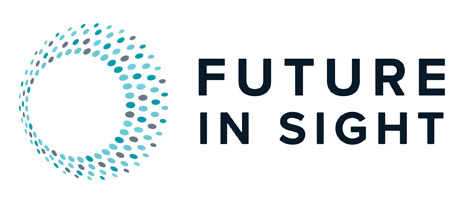
In 2008, David Hagen, 64, of Hampton, began experiencing smoky vision. He made an appointment with his doctor, who concluded it might be a symptom of dry eyes, but suggested that he see a specialist to ensure it was nothing major. A year later, he visited an optometrist thinking he needed glasses. During that appointment, the diagnosis was devastating: he had advanced glaucoma which had caused optic nerve damage.
The diagnosis was scary, but it was clear that Hagen needed treatment immediately to try to slow down his loss of vision. Over the next six months, he was using different drops and medications and had laser surgery on both eyes. Unfortunately, the damage was permanent and he would continue to lose his sight.
“The thought of going blind really struck home with me,” Hagen said. “My grandmother also had glaucoma, and she eventually went blind.”As his vision decreased, Hagen had to adapt to his new lifestyle. “No longer being able to drive was really hard to overcome,” he said. “I always loved driving, and to this day, not being able to do that anymore is something that I still struggle with.”
To help aid in his transition to a new lifestyle, Hagen’s doctor connected him with New Hampshire Association for the Blind. During his first appointment, a staff member explained the organization’s programs and how it would assist him during every stage of his vision loss.
Hagen was referred to a peer support group in Portsmouth, but was reluctant to join since he was still coming to grips with his diagnosis. “I felt alone. I thought to myself, ‘I’m not like anybody else anymore, I’m different.’ My friends and family were there for me, but at the end of the day, I was the one going blind,” he said.
“I almost left the first peer support group I went to, but told myself that if I didn’t like it, I could leave and not come back,” Hagen said. “Halfway through that session, though, I realized I was sitting in a room full of people who got it. They were people going through the same struggles, people I could connect with. I realized I wasn’t alone in my vision loss.”
The peer support group and the Association’s Seacoast Advisory Committee introduced him to others who became close friends. “Without my vision loss, I would have missed out on this amazing part of my life.”
Hagen began getting more involved in the Association. He ran monthly meetings and joined the Advisory Committee, eventually moving up to the Board of Directors.
“My mission now is to spread the word. There are more than 30,000 people in New Hampshire with vision loss, thousands of which have never heard of New Hampshire Association for the Blind. I want to be able to reach all of them so they know that they are not alone and there are people here who understand. Vision loss doesn’t mean your life is over, it just means that it’s changing,” Hagen said.

